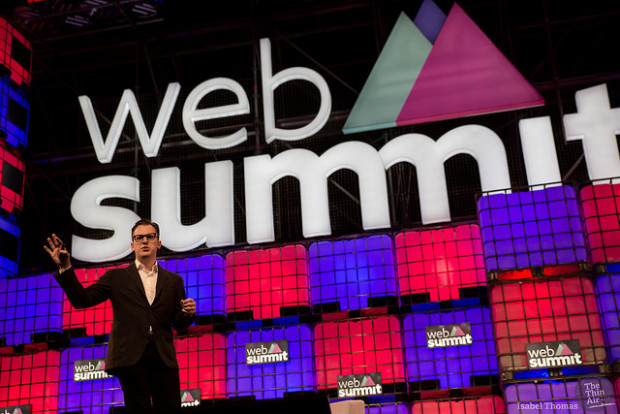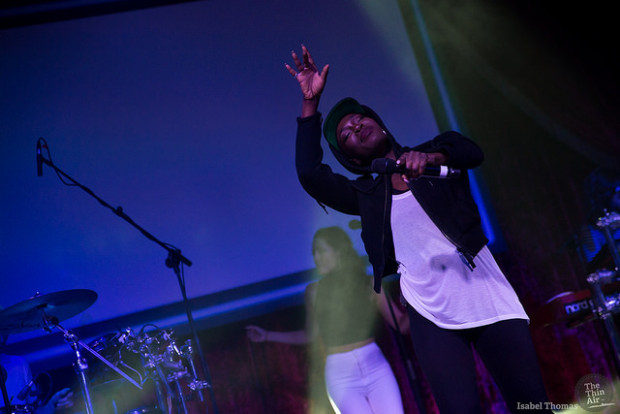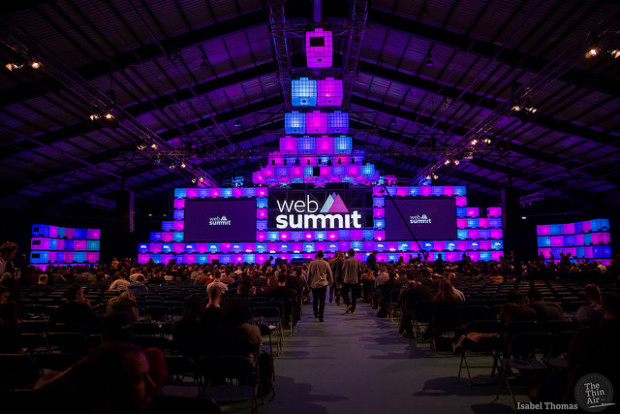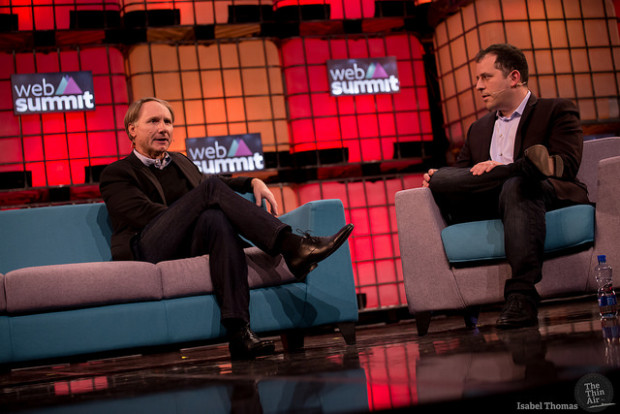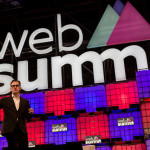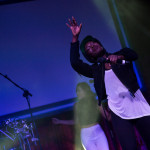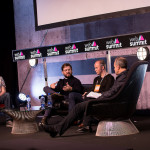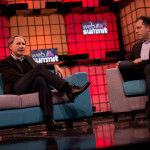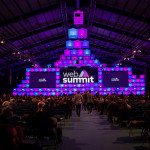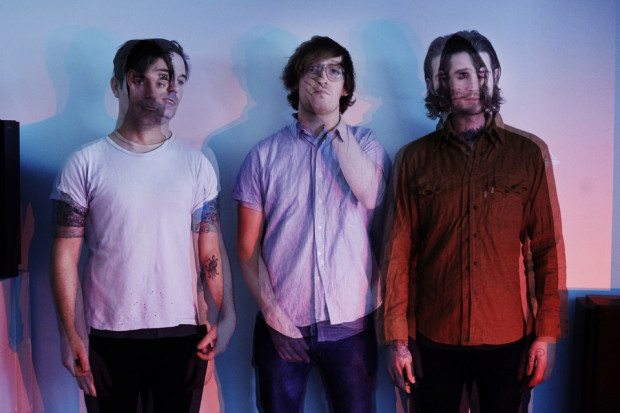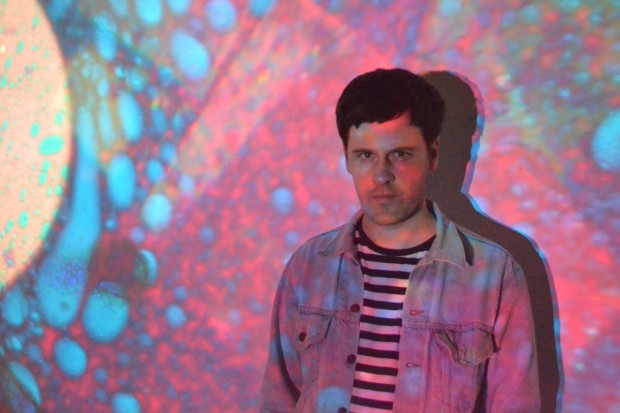Web Summit has come and gone. And again it took the city by storm, 42,000 people from all across the world attended what is now not so much a conference as it is a festival. It’s the Electric Picnic of technology – one big party with lights and buzz. It’s a techie dream, an overload of information and noise. But is it all just buzz or is it useful to startups? After all, it is designed with startups in mind.
Over three days Dublin bares witness to the latest in digital innovations. Leading tech giants, investors and the world’s media flock to the RDS to see what is the ‘next big thing’. You see, we are literally just on the cusp of a digital revolution. Technology is speeding up exponentially and more than likely we haven’t even seen the start. The bigger the potential, the bigger the excitement that engulfs our dirty old town! But there’s nothing dirty about Dublin today. Just take a look down at the docklands, or what is known as the ‘Silicon Docks’ and you will find the biggest tech giants in the world. Facebook, Google, AirBnB, the list goes on, its no wonder people from all over the globe come here to be part of Web Summit, to bask in the tech sun, to soak up the possibilities and the chance to just maybe bump into Elon Musk of Pay Pal/Space X, or Mike Krieger of Instagram. It is more California, Silicon Valley than Dublin, Ireland.
And the transformation is accentuated even more so when night summit hits the town. Resembling something out of HBO’s show Silicon Valley, you get the sense that everything is amped up, exaggerated. The music seems louder, faster, the drink stronger, the energy higher. It’s the digital age! It’s what the web would look like if it were physical. Topping the night summit this year was without doubt the unexpected performance of grammy award winning artists Clean Bandit (above) at the Academy.. Their anthemic hit ‘Rather Be’ summed up the entire energy that encapsulates Web Summit. Not a single person had two feet on the ground.
Back at the RDS the next day, with plenty of sore heads, over 2,000 startups begin another day of living the dream, or at least building their dream. But where are all these startups coming from? You see, this digital revolution we’re in – which explains why the Web Summit is so successful in the first place – is also the reason for so many startups. Literally every sector is being disrupted as products and services are literally changing the world. It’s no wonder there is so much excitement and passion around this event.
On arrival of the Web Summit you are met with rows and rows of startups all lined up against one another with a ‘one by one meter’ display. It’s a startup mart, loud and fast-talking. Here, you got to stand out or you will be swallowed by the enormity. Crammed into a tight space and impersonal, it makes you wonder how on earth would any of these guys get anything from this? But as one start up told me if you don’t go fishing you wont catch a fish. Fair enough, yet I can’t help but think that there is a lot of playing on ones desperation here and the only real winner is the Web Summit.
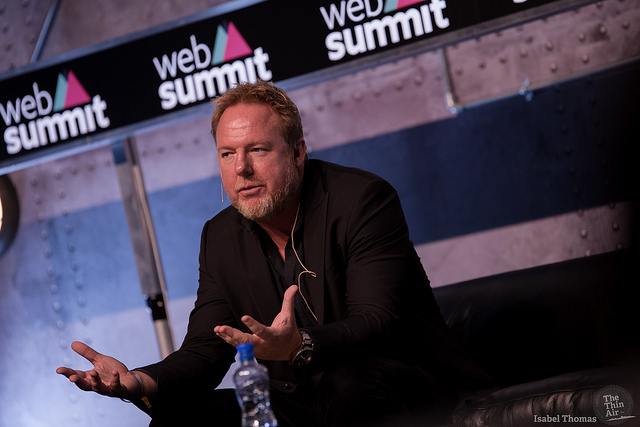
Alongside the startup mart, 21 summits take place over the three days with 1,000 speakers taking to the stages including the founders of tech giants like Instagram, Pixar, Kickstarter and more. The talks are designed to inspire, advise and motivate startups. They’re quick 20 minute bursts of information, which makes me wonder is this the idea? Their snappy bite sized information edits more reflects today’s short attention spans than in depth discussions. But it seems to work. By keeping it moving it creates a dynamic, interesting and above all exciting atmosphere. The question still lingers though, is this helpful to startups?
In fairness some of the talks were assistive but there’s only so much talking one can do. Besides nothing new is really being said. It just seems to be a rehash of the same old discussions. At Music Summit a listless panel that at times seemed to be boring themselves, spoke about how digital is disrupting the music industry and how the industry must adapt. But man, we’ve been talking about this for ten years and still the industry resists. The longer it does the more strain on the artists as revenue is drying up. Answering such issues, Bruce Flohr (above) of Red Light Management talked about how artists need to stay relevant, how David Grohl of The Foo Fighters insists that making a record isn’t enough these days.
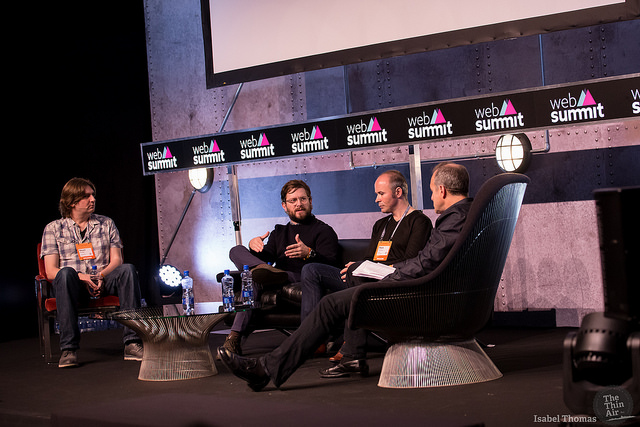
Stuart Dredge (Music Ally), Chris Kaskie (Pitchfork), Mark Mulligan (MIDiA Research) & Cliff Chenfield (Razor and Tie)
Staying with Music Summit, Cliff Chenfeld of Razor and Tie declared how artists must make money other ways, gaming music being one such avenue as fans sync up using songs. Answering the question ‘what will be the next big tech that will change the music industry’, Steve Angello of Swedish House Mafia and founder of Size records said it’s already here. I hope that’s not the case because it seems a little flat to me!
Back on center stage, founder of Kickstarter, Yancey Strickler informed the crowd that the most successful projects on their platform are those that bring people together. He also encouraged startups to be patient, to believe in what you’re doing and don’t sell out too early. Easy to say when you’re a billion dollar company and not a start up desperately in need of financing just to keep going for another few months.
Mike Krieger, co founder of Instagram brought an energy into the room that drew the worlds media directly to the front. People lined the edges of the full capacity arena. On this stage he is a rock star! Everyone hung on his every word but to be honest he didn’t say very much that hasn’t already been said about Instagram and social sharing networks.
A welcome break from all the tech talk saw author Dan Brown (below) take to center stage and share his views on the incompatibility between spirituality and science. Ironically, the man that has no real interest in technology had the most profound remark to make of the entire event. According to Brown he believes ‘tech will have a bigger impact on spirituality than all the worlds religious leaders put together’.
The break didn’t last long, as quickly as Dan left the stage; the crowd was propelled into the future. Hyper Loop is a transportation technological company that aims to develop the worlds first ever high-speed transportation system that would see pods travel at more than 1,200 km/h. If such a means of travel were to be constructed this would redefine everything, from how we design our cities to where we work and play.
But everything ends eventually. And Web Summit is now off to Lisbon for the next three years. One thing that is certain is that we will miss it. Kenn Davis
Photos by Isabel Thomas

